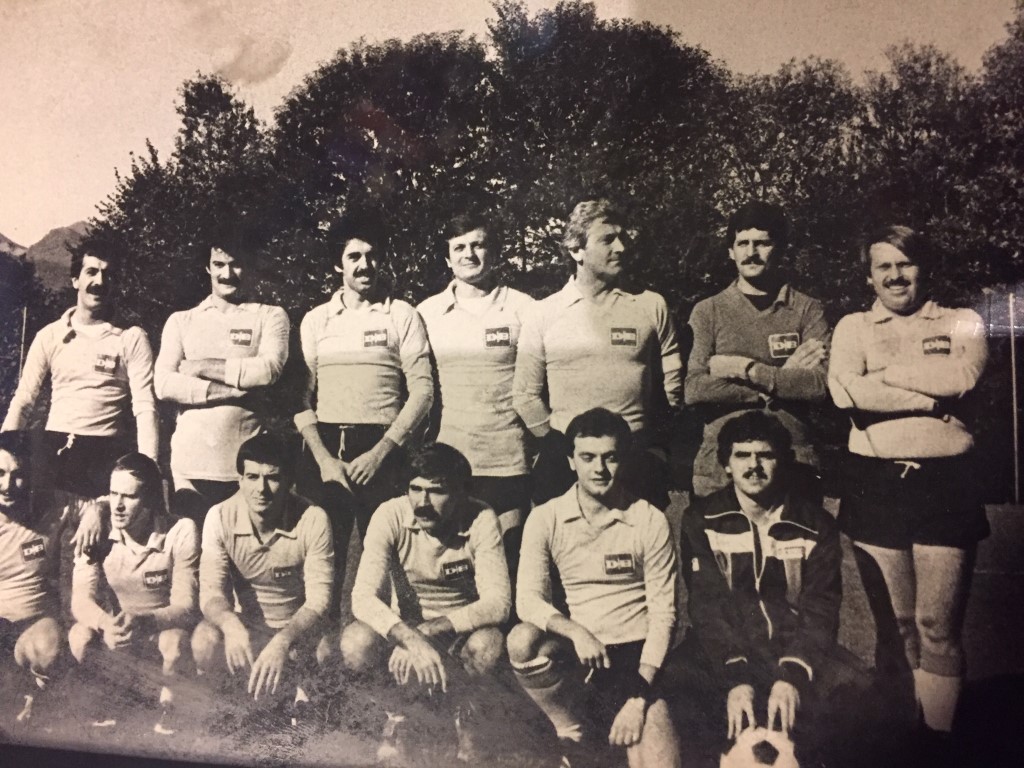This summer, soccer fans and football lovers enjoyed the FIFA Euro Cup 2021. Obviously, the Italians enjoyed being back to being the champion of Europe after a long absence from winning. Their huge celebration gave them a way to recuperate from the humiliation of missing qualification to the last World Cup.
Those of you who have worked with me know that I always make comparisons between winning in soccer and winning in business. I saw in the FIFA EURO CUP many lessons that can be applied to business. I will share a few key points in the hope that they will help you reflect on my analogies for becoming better leaders and managers.
Leadership, teamwork, and coaching
The Italian coach, Roberto Mancini (appointed only in May 2018), was credited to have transformed the Italian National team in a short period of time. He is acknowledged to be the primary reason for the Italian win. Many will talk strategies and tactics, which are of course important, but way before these is the concept of “team play”. Mancini created a “team” with a combination of experienced and young players that complemented each other. He did not depend on few stars. He also trained on new offensive and defensive strategies based on speed, discipline, and a desire to win. Mancini exemplifies leader with fresh ideas and strong leadership. He won over many experienced coaches who were great in the past but not for today’s game.
Today’s most competitive business landscape requires strong leadership and solid teamwork with engaged and committed players—in more specific words—organisations that work as one dedicated team. Yes, there are different specialisations and functions as in sales, marketing, production, accounting, etc., but all must perform as one team—no silos, no turf protection, no time for politics. A nimble, united, and decisive team working towards a common goal. Teamwork starts at the top. Hierarchy is OK but the proof is in the innovation and the execution, not in the talk.
The “how to” of building a strong team
Team play is key. We all know that, but how do you build a strong team? Let’s start with what not to do: Strong teamwork does not come by recruiting friends, hiring people like us, or by legislating teamwork through authoritative management. Building a strong team involves “knitting” together people who are united by the “purpose of the organisation”, complement each other’s skills, and understand that wining depends on teamwork. In tennis and golf, for example, you compete with yourself, and your performance depends only on you. In soccer, hockey, or basketball, you compete as a team, and even if your role is defined, you only win as a team or lose as a team. Your individual performance is important, but it is team performance that makes you win.
In soccer, a team is composed of the goalkeeper, the defense, the midfield, and the strikers or attackers. Each player has a specific role, different from the other players. Players’ performance is even judged by different parameters. The goalkeeper is not allowed any mistakes! This is because a goalkeeper mistake is obviously brutal to the entire team. Compare this to a mistake of a striker which is definitely OK. On the other hand, a striker’s sole purpose is to score goals. Not scoring for 2 or 3 games will put the striker in jeopardy of being substituted. No ego, just solid teamwork
What about key players who may need to sit on the bench and just watch when the coach has different priorities for a game. All these comparisons find their similarity with a business team. Solid team players accept the authority of their leader and learn to put team performance ahead of individual criteria.
One can recognise strong team players by the way they behave after scoring a goal. Solid team players run to their team members to celebrate, while “ego” team players run to the fans seeking tributes through applause! There is no room for ego in a team. Strong ego is an enemy to strong teamplay.
Midfielders have multiple responsibilities; they must quickly defend when their team loses possession of the ball and must rapidly attack when they have possession. They are an effective liaison between the front and the back of the team, and constantly distribute plays and provide assists. They run on average over 10 KM per game, yet rarely get the applause a striker receives for scoring a goal. This is similar to a salesperson who signs a large contract and is recognized and cheered for the win vs. a quality control clerk who helps making sure that products are of high quality but seldom get recognised for their immense contribution.
Strong leaders work constantly to knit the team together by adding new members with new needed skills, providing constant training to those who need some vitamins, developing the ones with potential, celebrating, and rewarding wins and progress made, while pruning the ones who do not fit or contribute.
Every part of the “whole” has a responsibility for great team performance
Smart leaders are good coaches; they understand that every team member is important to the whole and no job is unimportant. I often use the example of a parking attendant, an usher, or a washroom cleaning associate job in a Michael Bublé’s concert. They may not have as complex a job as the orchestra conductor or the audio manager, but they can significantly contribute to guests’ experiences. An incredible performance by Bublé can be ruined by a disorganised parking lot, wrong seating, or a dirty washroom!
We can learn from a soccer coach like Mancini about teamwork. And if you ever think that you’ve “learned it all”, remember this: Henry Ford once said “Anyone who stops learning is old, whether at 20 or 80. Anyone who keeps learning stays young. The greatest thing in life is to keep your mind young.”
W 985

Can you find Hugh?
Hint 1: He has hair and a moustache (but all players have hair!! and 8 have a moustache !! We are in ITALY!!)
Hint 2: He crossed his arms and is not the goalkeeper!


